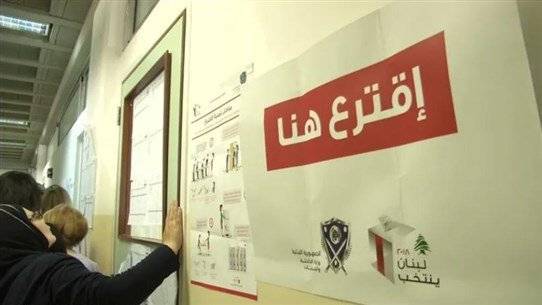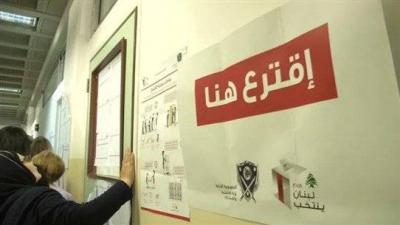The voting rate in the south decreased compared to the 2018 elections, where 228,563 voted out of 490,362, to 224,541 who voted this time out of 497,621. The list "Together Towards Change" received 30,384 votes, allowing it to send two candidates to parliament: ophthalmologist Elias Jaradah, who received 9,218 votes, and young lawyer Firas Hamdan, who garnered 4,859 votes. This confirms that the opposition has become a significant force.
The elections provided a passage for change forces into the decision-making center, emerging as the third power in the south after "Hezbollah," which dominates with preferential votes, as reported by "Nidaa al-Watan." Hezbollah's candidates received: Mohammad Raad 48,543 votes, Hassan Fadlallah 43,324 votes, and Ali Fayyad 37,047 votes, while "Amal" received 49,598 preferential votes distributed among its eight candidates. The change forces' candidates received votes very close to those of "Amal." not only did Elias Jaradah receive 9,218 preferential votes, exceeding those of Haradan, Hashim, Khairudin, and Hamid, but Hamdan also secured 4,859 votes, indicating that the opposition is now in direct contention with "Amal" and even threatens its seats, having won two of its allocations.
The figures reveal that the opposition is gaining traction and threatens the empire of the movement, which has failed to secure its front in the face of competition for the preferential vote for MP Hani Qabisi. Notably, the rate of boycott and voting with blank ballots, in addition to 6,410 invalid votes recorded against 3,042 blank ballots, reflects a natural reaction to the dissatisfaction prevalent among the public before the elections, as they expressed rejection toward many proposed names, particularly a wide segment of the youth who sent a strong message to the duo's alliance warning them to "beware of your choices," and that they "will be vigilant" against any candidate not fit for the position.
The boycott proved successful, along with the 9,452 invalid votes, effectively preventing the duo from achieving high rates. "Amal" sustained the most damage from this disconnection and, according to monitoring sources, bears responsibility for its significant setback due to its insistence on names lacking popular legitimacy, attracting public resentment like the banker Marwan Khairuddin, who fell victim to a decisive Druze blow after being abandoned by the "Progressive Socialist Party" and failing to garner all of the "Democratic Party" votes.
According to reports, the "Progressive Socialist Party" cut President Nabih Berri at his weak flank in Hasbaya, failing to allocate the 3,500 votes of his followers to Khairuddin, which led to his loss against Hamdan, who successfully garnered 1,500 votes including a significant number from "Progressive Socialist Party" supporters. Khairuddin, unlike Haradan, did not enjoy the backing of the Shiite lever associated with "Hezbollah" as in previous occasions; "Hezbollah" appeared to prefer holding on to its preferential votes for its candidates—showing the true weight of allies on the ground during the first test. According to sources, the party aimed to safeguard the Shiite front from any infiltration, to prevent any competitor from entering the Parliament, and secondly to maintain its MPs, although it allocated some of its preferential votes to MP Nasser Jaber in Nabatiyeh.
The second setback in the elections was represented by candidate Haradan, who received only 1,859 votes compared to 9,000 for MP Jaradah, who won not only the Christian and Sunni votes but also the Shiite dissenting votes aspiring for change. Undoubtedly, the elections unveiled the actual size of the parties on the ground, demonstrating significant public resentment reflected in the nearly 50% boycott rate, a statistic that requires careful consideration and analysis.
Moreover, the increased prevalence of blank ballots was striking this time, as the youth in Nabatieh, specifically, decided to boycott before the elections to express their stance toward the proposed names and the marginalization of their opinion, which significantly affected the voting process and deprived the list of retaining its full seats, entangling it in the trap of "breaches."
In the south, the notable aspect of this battle was that the real confrontation was over the preferential votes among a single-colored team, allowing the change forces to break the long-closed gates of the south and enter Parliament with remarkable weight. The 30,342 votes in opposition to the "Together Towards Change" list, predominantly from Shiites, confirms that dissenting voices are beginning to carve their path in the south, which will carry weight in all upcoming electoral processes, including the municipalities.
This is the first time since 1992 that the southern opposition successfully enters parliamentary deliberations, marking a significant milestone in their long history of dissent. Two of its candidates, ophthalmologist Elias Jaradah and lawyer Firas Hamdan, will experience parliamentary life for the first time, after they ousted As'ad Haradan, who had been in power for over 30 years, and blocked Marwan Khairuddin's dream of parliamentary seat. Will they succeed in changing the reality?
Nidaa al-Watan




